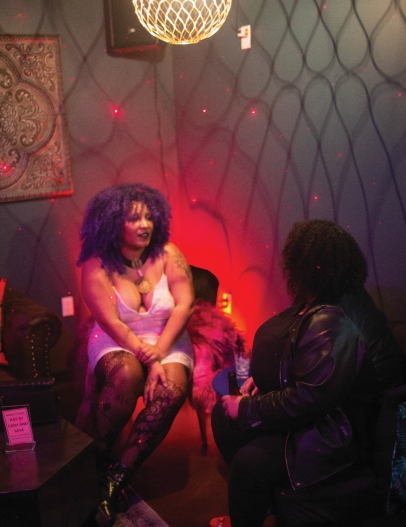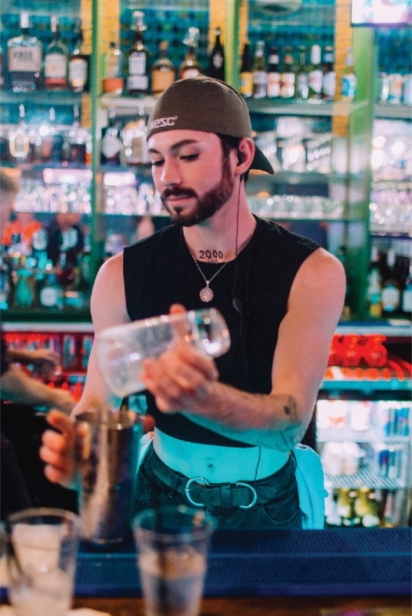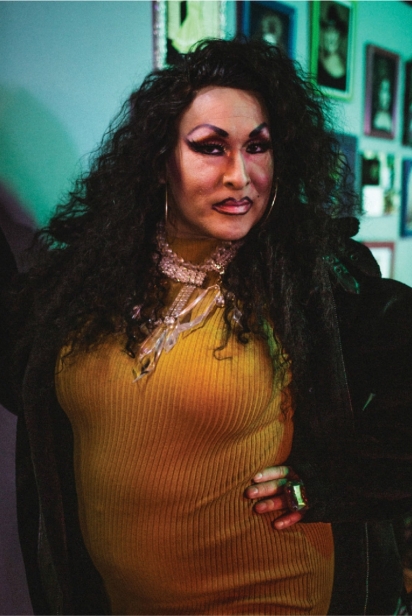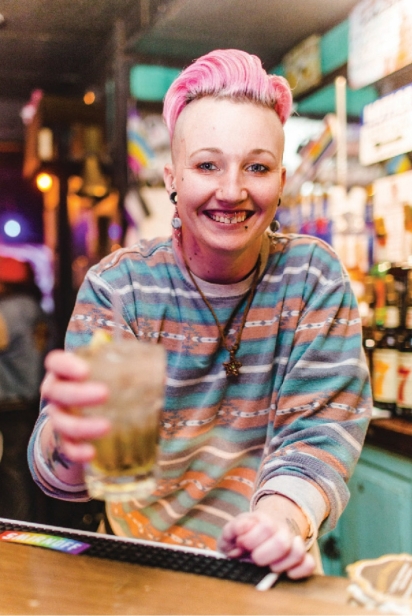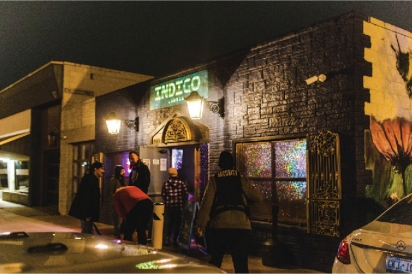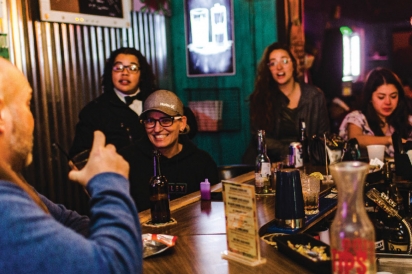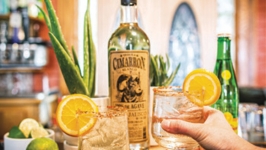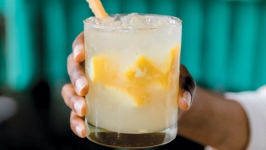OKC's Lesbian Bar Scene - An Unlikely Haven
Oklahoma City emerges as the nation’s lesbian bar stronghold
In cities like San Francisco and New York City, gay bars are as commonplace as Starbucks. And as omnipresent as these rainbow-clad watering holes are, they’re taken for granted. In Oklahoma though, a conservative state where Pride feels more pivotal, these inclusive businesses aren’t just places to revel and dance: they’re a vital sanctuary.
This need for sanctuary explains why one of the reddest states has evolved into a queer haven, with two Pride festivals and numerous queer-owned bars, restaurants, and businesses throughout Oklahoma City. The city is also a particular refuge for lesbian bars, a specific type of space that’s become rare or wholly nonexistent in most states.
Most cities have zero lesbian bars. Queer spaces that cater to gay men are far more common. Gay nightlife in general has achieved a height sufficient to become a stereotype turned norm, but lesbian bars, skewing more toward low-key dives than bedazzled nightclubs, have succumbed to various economic and societal pressures, resulting in a reduction from nearly 200 to 24 in the U.S., according to The Lesbian Bar Project.
While the lesbian bar population dwindles nationally, Oklahoma City boasts two. When coupled with another lesbian bar in Tulsa, Oklahoma ties with New York in lesbian bar prominence. And, if you count the newly opened lesbian-owned Indigo Lounge in the 39th Street District, Oklahoma becomes the country’s lesbian bar capital and Oklahoma City its epicenter. Along with affordable rent and a growing, diverse population, the reason this endangered genre thrives here is a matter of essentiality.
“It’s necessary here,” proclaims Ann Harris who, along with her wife Tracey, owns Frankie’s, a lesbian bar fixture since 2017. “We live in a red state and we can go as a gay couple to a restaurant. Servers and owners are welcoming to that, but not necessarily other people in the restaurant. [The bar is] a safe space.” In light of the Pulse and Club Q tragedies in Orlando, FL and Colorado Springs, CO, the concept of a safe place grows ever more important.
From its original outpost on NW 36th St. to its current iteration on North May Ave., Frankie’s has been a cornerstone in the lesbian community—a welcoming, casual, and inclusive haven that feels like a queer Cheers, where regulars are known by name, one of the keys to their success.
“What made that easy for us was that Ann and I both had different kinds of friends,” says Tracey of their diverse clientele. “Lots of lesbian friends, gay men, and straight friends. We just wanted a place where everybody could grow.”
“We saw progression. Our goal was to get people off the couch, comfortable, and [let them] know it’s okay to go out again and have a place that’s safe,” adds Ann, highlighting the camaraderie of other queer bars in the city that provide similar solace.
Unlike the fierce competition and sky-high costs of doing business in queer-centric coastal cities, Oklahoma City has room for all, like Alibi’s on North Pennsylvania Ave. With a core focus on community, the longstanding lesbian bar has thrived under the adaptable ownership of Krystal Campbell-McDaniel and Tiffany McDaniel, who took over the bar in 2013 and breathed life into it for a new generation.
“It had been an anchor in the community before, and it got a refresh, and they brought their own sensibility,” says Alexis Clements, Brooklyn based director of the lesbian bar documentary All We’ve Got, which features Alibi’s as a main star in the film. “That’s important because a lot of bars stagnate. You need to cycle new generations into the bar or else it ages out and closes.” She notes this is particularly true of lesbian bars, which feel more restricted by age range.
The McDaniels, she attests, made a point of being inclusive. “A huge thing for both of them was to make sure people felt comfortable— non-binary, trans, straight folks,” Clements says. “Nobody’s checking your queer ID at the door. Especially for bars owned by queer women, it has always been the case that they’re a little more inclusive than bars intended for gay men.”
In a notoriously fickle industry, it’s this continued, enduring drive that fosters success. Says Clements of Alibi’s, “I love that these community- minded people took over this bar and gave it new life, and that’s the best hope for queer spaces: they keep getting renewed with fresh perspectives.”
Another fresh perspective is found at Indigo Lounge, 39th Street District’s first new bar to open in years. Known as Oklahoma City’s “gayborhood,” 39th Street is a strip on the northwest side known for its bars and clubs geared primarily to gay men, from Angles nightclub to drag dinner theater at The Boom. What makes Indigo unique is its status as the first lesbian-owned entity on the street, with a palpable sense of inclusion lacking in the district’s other businesses.
Along with her wife, Lisa, Jessa Johnson is the kind of friendly owner who makes the rounds throughout the bar, greeting customers and getting to know people—a rare sight in the clubby enclave. Billed as “a proud, family-owned, vibrant, diverse and inclusive community bar and lounge,” Indigo Lounge marks the latest chapter in Oklahoma City’s ongoing story as an unexpected mecca for lesbian spaces.
> Alibi’s, 1200 N. Pennsylvania Ave, Oklahoma City, (405) 604-3684 Frankie’s OKC, 3200 N. May Ave, Oklahoma City, (405) 602-2030 Indigo Lounge, 2215 NW 39th St, Oklahoma City


